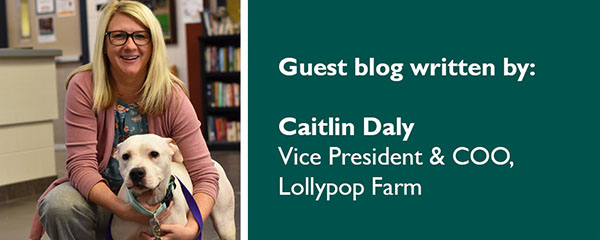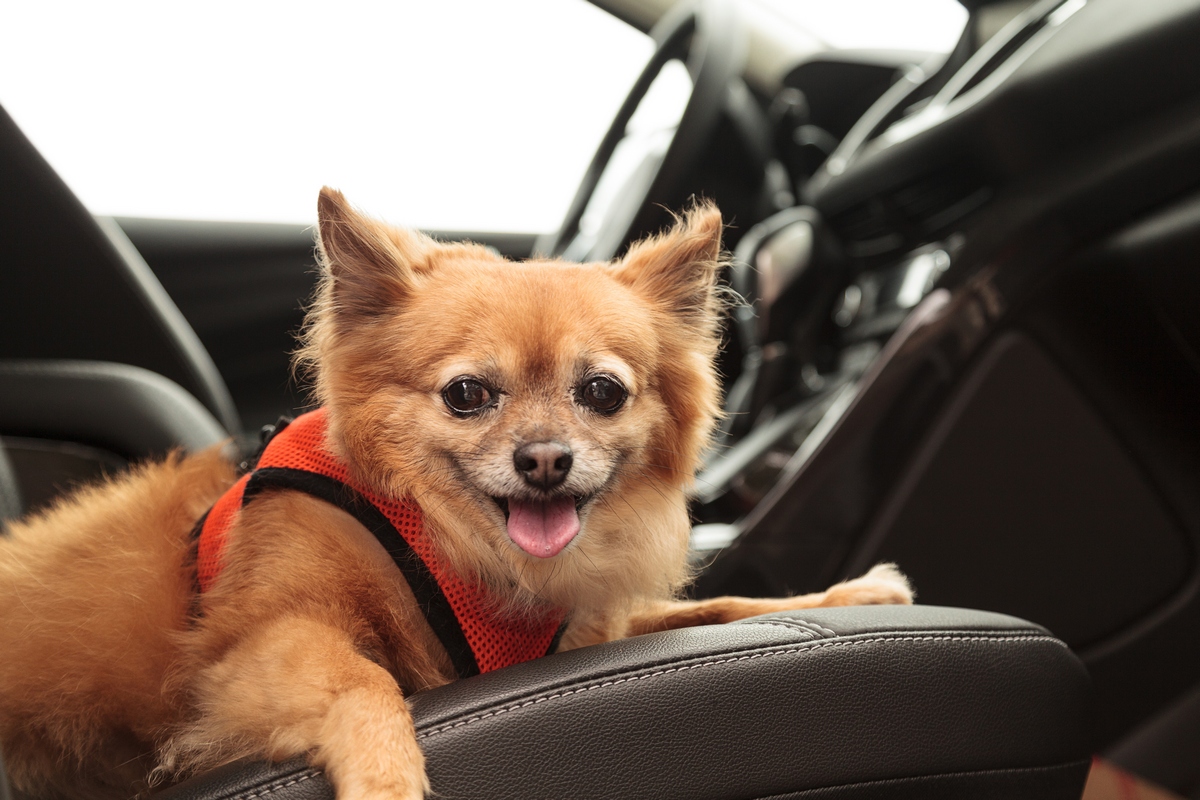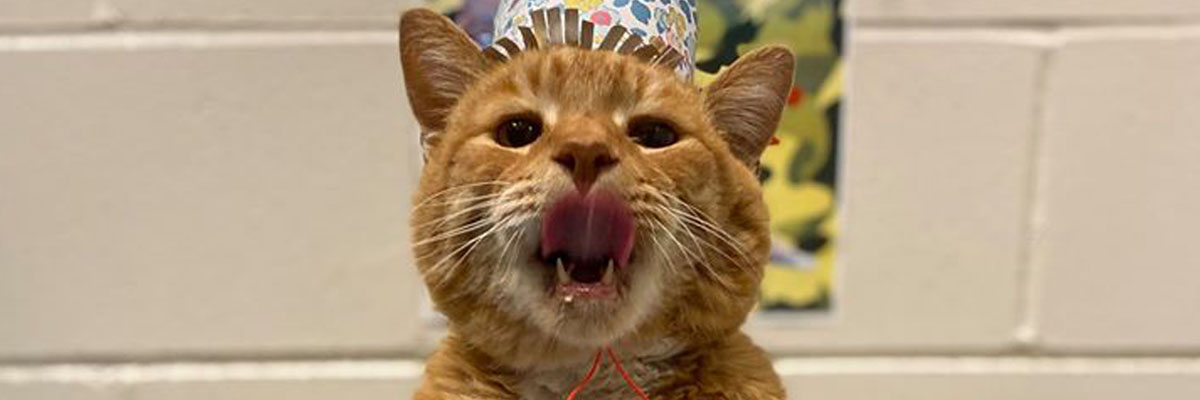It has been over 8 weeks since COVID-19 rocked our world here at Lollypop Farm. If there is one thing these past few weeks have taught us, it is that the big changes for animal sheltering and care are upon us. Shelter leaders from all over the globe have been meeting weekly to discuss what the future looks like, both individually and as a whole, and the results are nothing short of inspiring. It’s been heartening to connect with heroes from all over the world, and even more so to see us rise together as a united front in these unprecedented times.
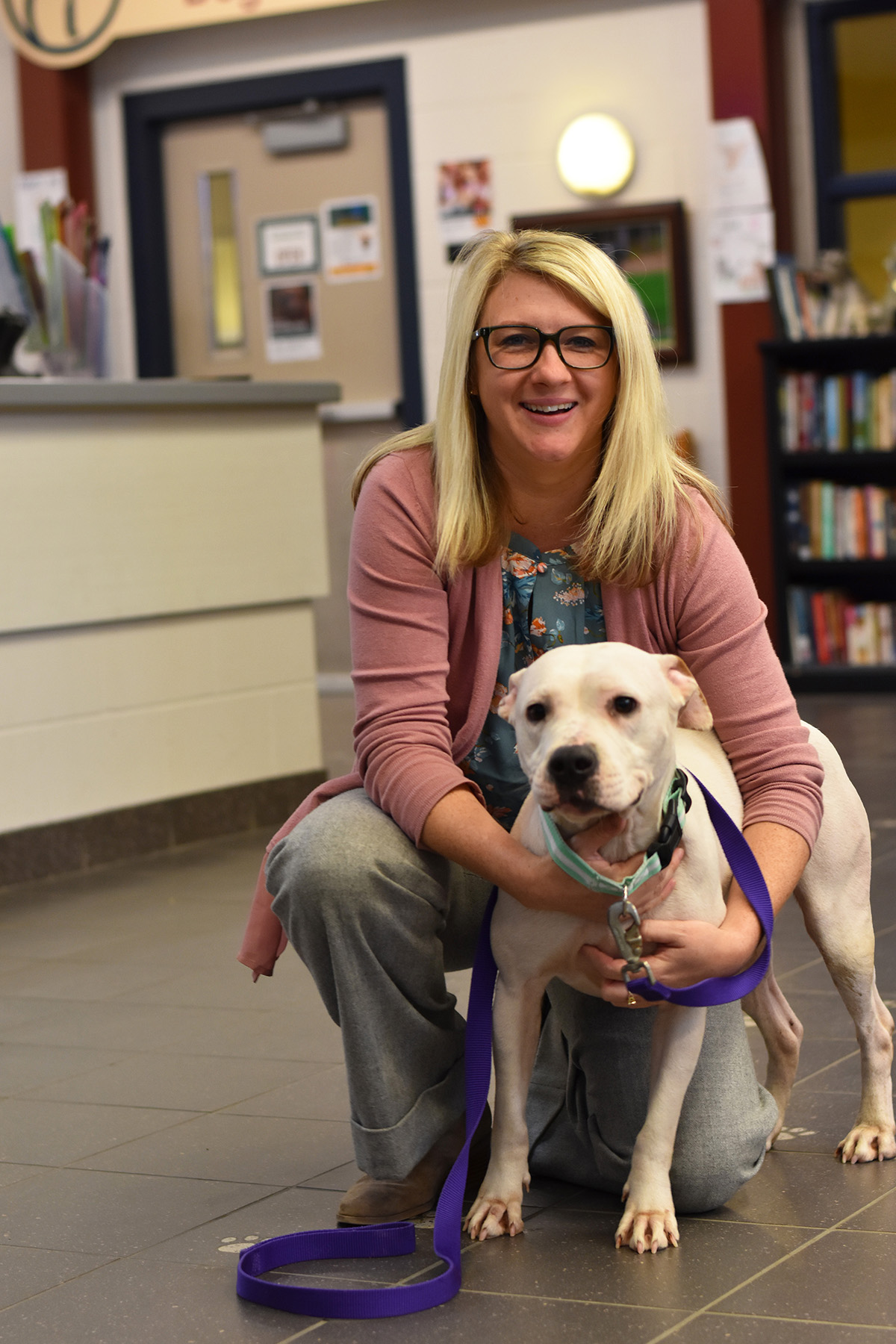
Our shelters and agencies go by many different names: Humane Society, No Kill, Animal Services, SPCA, Socially Conscious. Despite the varied labels, there are so many more similarities between us than there are differences. Most importantly, there is one constant that defines us: we are working tirelessly to save and improve the lives of animals and support the people who love them.
We have always known how lucky we are to have such a supportive community. Without you, our work would not be possible. You make it possible for thousands of animals to receive veterinary services, behavior enrichment, and compassionate care. As we look towards the future, you will continue to play a very important role in bettering the lives of pets in our community. Looking forward, here are some changes you can expect from us.
Foster is the future
Since the start of this pandemic, we have endeavored to find foster placement for 50% or more of our dog and cat population. Of the 106 cats in our care currently, 61 of them are receiving individualized care in foster homes. Our pre-COVID percentage was closer to 20%.

Our industry has largely relied on brick and mortar, kennel-based housing for animals since 1869. It’s time for something different. Studies have shown that placing animals in foster homes can reduce mental and physical illness, while helping them find permanent families. A recent nationwide study on dog foster programs reported, “that dogs benefit dramatically from foster care. Organizations should utilize foster care to improve welfare and find homes for dogs because it has a significant impact on behavior and well-being.” (Maddie’s Fund, Foster care has an impact on dogs’ welfare and adoption, 2019, read more here.) Another study published in Animals found that foster care increased lifesaving, cut costs, and improved health. (Patronek & Crowe, 2018).
We are committed to keeping 50% or more of our animal population in loving foster homes from now on. If you are interested in fostering, especially for behaviorally challenged or medically vulnerable pets, please apply here.
Prioritizing Resources & Emergency Intake
As a response to COVID, we adopted an emergency only intake policy to save room for COVID-19 exposed pets and so we could continue to provide superior care for the pets in the building while working with minimal staffing. What we learned is that by taking in only emergency situations, we were able to offer more individualized care for the animals in our shelter and provide better resources to the community members reaching out for help.
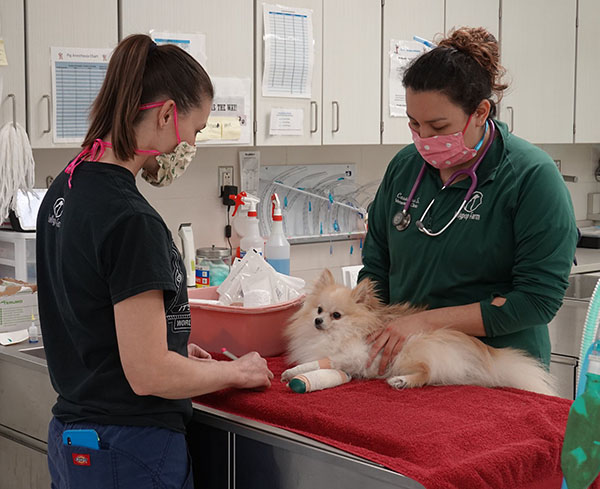
The model of the future asks that as a community we rally around vulnerable animals and their families. This means first looking for solutions that allow pets to stay in their loving homes whenever possible, even during times of temporary hardship. And when it is not possible find new homes for pets as quickly as possible.
During this difficult time, Lollypop Farm has found unique and impactful ways to provide better resources and assistance for our community. From a wide variety of low-cost veterinary care to telemedicine, our brilliant clinic team is continuing to work on new ways to preserve the human animal bond by providing veterinary resources to keep pets in loving homes where they belong.
On the topic of our fearless clinic team, it’s important that we talk about community (or feral) cats. Through targeted spay and neuter, we have made great strides in reducing cat overpopulation. The next steps involve working with community members and feral cat organizations to place cats back after surgery or to relocate them to safe, managed colonies. Those tactics, combined with our vibrant Working Cats® adoption program, will save more cats while continuing to provide vital community services.
Increasing our Reach for Behavior Services
Another important community service that we offer is behavioral training. Even before our lives were turned upside down by COVID, we had hoped to offer behavior and training virtually. Our current situation helped us press fast forward on that goal.
Our Behavior Manager, Rebecca Lohnes describes the virtues of this program as: “Virtual training has many advantages for both the humans and the animals involved! We are able to reach a wider audience than we could with in-person training. Geographically, we can cover a wider area—we have helped clients as far away as New York City! We are also able to help folks who have time constraints or other issues that would preclude them from accessing training (like childcare or transportation issues). Finally, some animals benefit from the virtual training format, particularly if they would be overly fearful, frustrated, or excited in a new place or with a new person. We’re able to observe their behavior under more natural circumstances.” Learn more about our behavior department here!

While there will be changes, some things will remain the same. We will always be your resource and we will always be the people you turn to for animal related needs. We will always put our community needs first.
The past eight weeks have taught us how agile and adaptable we can be, and it’s exciting to think about a new reality for animals in our community. A reality where we reach the neediest pets right where they are, through outreach and community engagement. We know that we are capable of amazing things, and we will accomplish these things together, with your support.
